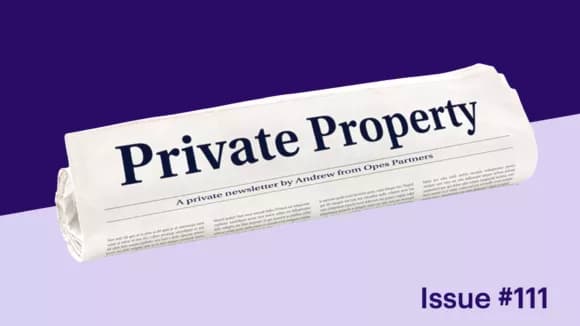
Property Investment
Property Investment
3 min read

Author: Andrew Nicol
Managing Director, 20+ Years' Experience Investing In Property, Author & Host
A lot has happened over the last 3 weeks.
The OCR came out. We had the budget. Now, starting on July 1st, we’ll also have debt-to-income ratios.
A lot of investors have asked what it means for house prices and their portfolios. Here are the numbers –
The debt-to-income ratios will stop some people from borrowing. The banks will say ‘no’.
If people can’t borrow as much, then house prices shouldn’t go up as fast, especially during the boom times.
That’s because a lot of the ‘risker’ high DTI lending mainly happens in the boom times when interest rates are low.
So the Reserve Bank’s new rules will even out the house price growth. They’ll make the housing market more consistent. That’s a good thing.
The impact is that we shouldn’t see the big booms and busts that we’ve had over the last 4 years. Again, that’s a good thing.
House prices will still go up. It’ll just happen more smoothly.
Look at this graph. It shows house prices in countries that have implemented DTIs. What do you see?
In all three cases, house prices have continued to climb after DTIs came in.
The Reserve Bank thinks that NZ property prices will go up by about 5% a year over the long term.
And remember, the Reserve Bank is setting the rules. Just two weeks ago, they released a new house price forecast.
It suggests that house prices would go up by 5.4% next year (2025) and 5.8% the year after (2026).
House prices will still go up.
It’ll just happen more smoothly. Maybe you’ll see house prices go up by 5% per year, rather than the 6-7% that happened in the past.
That doesn’t worry me. It’s what I’ve been telling investors to plan on for years.
The DTIs will have no impact when they come in on July 1st.
It’s not the debt-to-income ratios that will stop people from getting a mortgage. It’s the high interest rates.
The banks are already scrutinising mortgage applications at a 9%-ish interest rate.
Effectively, you can’t get a mortgage higher than 5 - 5.5x your income anyway. And the new rules are 6x your income for homebuyers and 7x for investors.
So, the DTIs are set above what’s currently happening.
Take a look at this graph. All types of borrowers are well below the Reserve Bank’s limits.
We’re basically driving at 50k an hour in a 100k zone. The rules will have no impact.
So what’s the point of the new rules? They’re really here to stop the rush of lending that happened during Covid from happening again.
The last big question many investors have is: “How many properties can I buy?”
The Reserve Bank has put out some estimates.
Let’s say you own 1 investment property today.
If the DTIs didn’t come in, the Reserve Bank thinks you can buy another 5 investment properties over the next 10 years.
With DTIs, that number goes down to 3 more.
So, these rules will slow some investors down. But not all investors will hurt the same.
New Builds are exempt. So, if you buy a New Build you get to stick with the old rules.
That means that if you want to build a property portfolio faster, New Builds could be the way to go.
The Reserve Bank’s estimates suggest you could grow a property portfolio almost x2 as quickly.
Got another question about DTIs? Hit reply and let me know. I’ll answer it on the Property Academy Podcast.
Managing Director, 20+ Years' Experience Investing In Property, Author & Host
Andrew Nicol, Managing Director at Opes Partners, is a seasoned financial adviser and property investment expert with 20+ years of experience. With 40 investment properties, he hosts the Property Academy Podcast, co-authored 'Wealth Plan' with Ed Mcknight, and has helped 1,894 Kiwis achieve financial security through property investment.
This article is for your general information. It’s not financial advice. See here for details about our Financial Advice Provider Disclosure. So Opes isn’t telling you what to do with your own money.
We’ve made every effort to make sure the information is accurate. But we occasionally get the odd fact wrong. Make sure you do your own research or talk to a financial adviser before making any investment decisions.
You might like to use us or another financial adviser